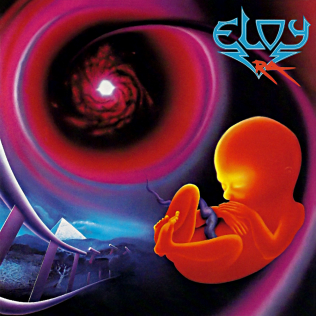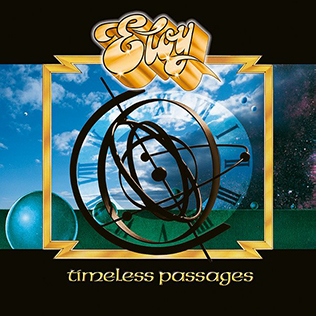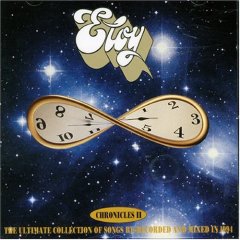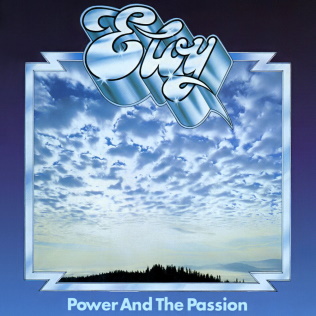
Eloy is a German rock band. Founded in 1969 by guitarist Frank Bornemann, the band is best known for their progressive rock music.

Inside is the second studio album by German rock band Eloy, released in 1973.

Floating is the third studio album by German rock band Eloy, released in 1974.

Ra is the thirteenth studio album by the German rock band Eloy, released in 1988.

Destination is the fourteenth studio album by the German rock band Eloy, released in 1992.

The Tides Return Forever is the fifteenth studio album by the German rock band Eloy, released in 1994.

Ocean 2: The Answer is the sixteenth studio album by the German rock band Eloy, released in 1998.

Timeless Passages is a double compilation album by the German rock band Eloy, released in 2003.

Ocean is the sixth studio album by the German rock band Eloy, released in 1977.

Chronicles II is the second of a two-part compilation of re-recorded songs by the German rock band Eloy. The first part, Chronicles I, was released the preceding year.

Colours is the eighth studio album by the German rock band Eloy, released in 1980.

Dawn is the fifth studio album by German rock band Eloy, released in 1976.

Silent Cries and Mighty Echoes is the seventh studio album by the German rock band Eloy, released in 1979.

Time to Turn is the tenth studio album by the German rock band Eloy, released in 1982.

Performance is the eleventh studio album by the German rock band Eloy, released in 1983.

Power and the Passion is the fourth studio album by German rock band Eloy, released in 1975.

Visionary is the seventeenth studio album by the German rock band Eloy, released in 2009.

Planets is the ninth studio album by the German rock band Eloy, released in 1981.

The Vision, the Sword and the Pyre – Part I is the eighteenth studio album by German rock band Eloy, released in 2017.

Reincarnation on Stage is the second live album by the German rock band Eloy, released in 2014.




















